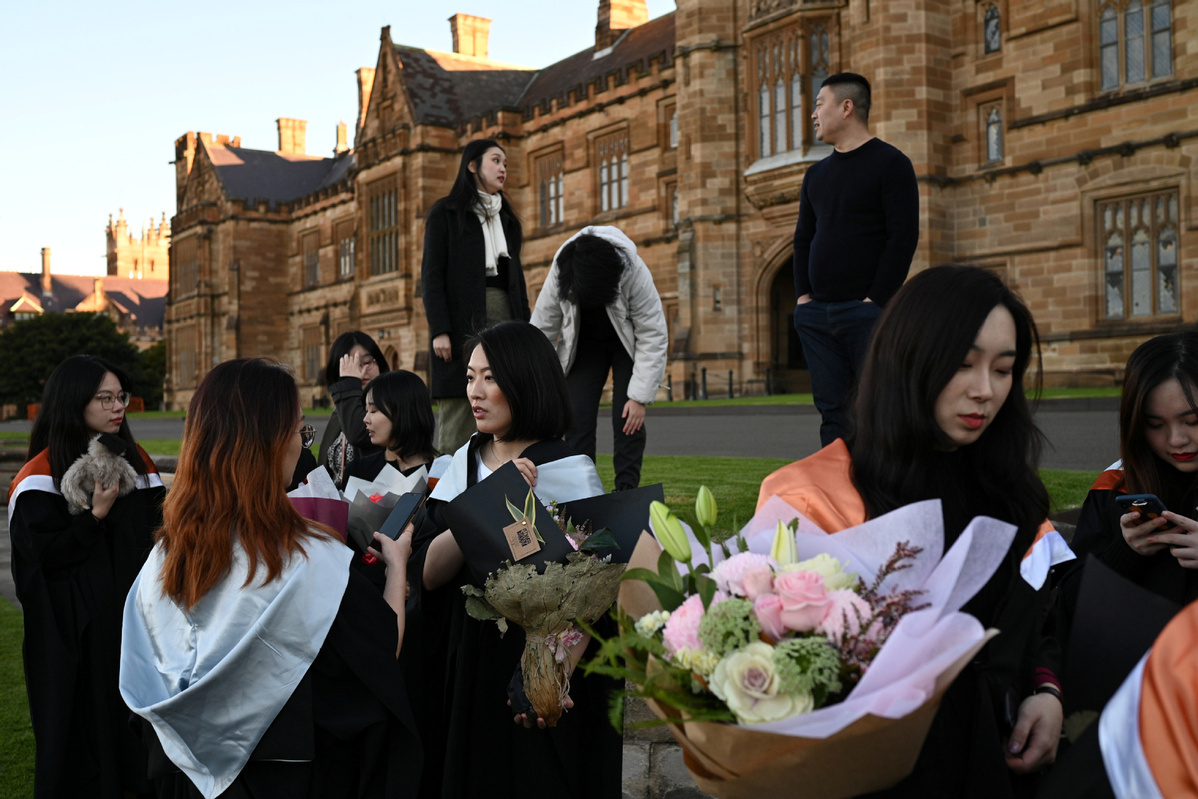
Shiyu Bao (centre) and her fellow classmates who are international students from China, get ready to take pictures in their graduation gowns around campus at the University of Sydney, after their in-person graduation ceremony was cancelled during the coronavirus disease (COVID-19) outbreak, in Sydney, Australia, July 4, 2020. [Photo/Agencies]
SYDNEY - Australia is set to lose half of its international student population, creating a 10.7 billion Australian dollar ($7.7 billion) sized hole in the country's broader economy, new modeling revealed on Tuesday.
If borders remain as they currently are under COVID-19, there will be roughly 300,000 international students living in Australia by mid-2021, a reduction of around 50 percent, the report from Victoria University's Mitchell Institute said.
"Australia is facing the dual problem of fewer new international students and currently enrolled students leaving the country," report author Peter Hurley explained.
The economic impact goes well beyond university campuses, with roughly 57 percent, or 21.4 billion Australian dollars ($15.5 billion), of annual revenue from international education, coming from goods and services spent in the wider economy.
Even if international students were to study remotely from outside Australia, the impact on local property, hospitality, retail and other businesses would be substantial.
Areas occupied by Chinese students saw the greatest initial difference as they were the first to be affected by travel bans, however future losses were expected to include students from a wider variety of countries, therefore having an effect on more Australian communities where students of different backgrounds reside.
Even with COVID-19 case number relatively low in Australia, applications remained at around 10 percent to 20 percent of where they were prior to the pandemic, suggesting a bounce back for the sector may take longer than expected.
Hurley recommended taking a practical approach to rebuilding the industry, which benefits not only Australia, but also the students arriving seeking quality education and lifestyle.
"Despite the severity of the current crisis, it seems not a case of if international students will return but when," Hurley said.
"It seems wise to add 'how' to the discussions so Australia rebuilds with a more sustainable international student education model that delivers benefits for everyone, including international students."


